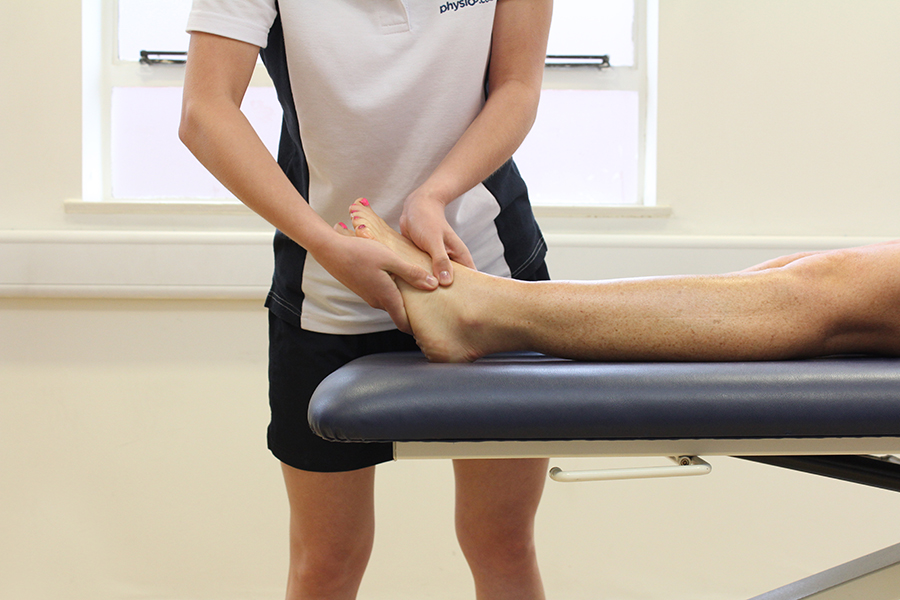Psoriasis
Psoriasis is a chronic (long lasting) skin condition that causes thick,
scaly patches known as 'plaques' to appear on the surface of the skin.
Psoriatic plaques can affect any part of the body and can be very itchy. As
well as affecting the skin, psoriasis can also affect the fingernails,
toenails and scalp.
At present there is no cure for psoriasis, however, its symptoms can be
effectively managed.
If you have psoriasis that is affecting your feet or toenails, please visit
one of our podiatrists for an assessment.
What is psoriasis?
Psoriasis is a common skin condition characterised by thickened areas of skin. The thickened psoriatic areas are known as plaques, which are raised and red with silvery white scales. Skin affected by psoriasis appears this way because the skin cells that make up the skin are turning over too quickly, normally skin cell turnover (where old skin cells flake off and new skin cells come through) is every 21-28 days, however the skin cell turn-over of a person with psoriasis is every 4-6 days. Psoriasis is therefore characterised by rapid skin cell turnover, which leaves a build-up of immature skin cells, that are known as 'plaques' on the surface of the skin.

What causes psoriasis?
Nobody knows the exact cause of psoriasis; however, research has found that
the immune system has a role in its development. The immune system is
responsible for fighting infection and it has a number of components that
help it to do this, including T-cells. A T-cell is a type of white blood
whose job it is to fight infection.
If you have psoriasis your T-cells attack healthy skin cells, the result is
that new skin cells are produced quicker than they are able to shed. The
T-cells also produce chemicals that instead of healing, cause more harm,
leading to inflammation.
If you have psoriasis you may find that certain things make your psoriasis
worse, this is called a 'flare'. Anything that causes a flare to happen is
called a trigger; therefore, by having an understanding of what your
triggers are can help you to avoid flares. Some known triggers for
psoriasis flares include:
- Alcohol
- Stress
- Smoking
- Diseases/conditions that affect the immune system
- Infections
- Trauma to the skin
- Medications
- Weather
What are the signs and symptoms of psoriasis?
The signs and symptoms of psoriasis are dependent upon what is affected, for example, psoriasis of the skin appears as thick, raised scaly patches that are red with silver scales, and these are called plaques. The psoriatic plaques can be itchy and painful. Psoriasis that affects the nails causes the nails to lift from the nail bed, the nail plate will appear 'pitted ‘and thick.
How is psoriasis diagnosed?
Psoriasis is diagnosed based on a thorough history and an examination. If the diagnosis is unclear you may be referred to see a dermatologist, this is a doctor who specialises in the skin.
What would podiatry for psoriasis involve?
The role of the podiatrist in the treatment of psoriasis is to assist with any secondary symptoms that may occur as a result of your psoriasis, these may include:
- Giving advice on the correct emollients to use on psoriasis affecting the feet
- Thick nails treatment
- Footwear review
- Advice and education
- Nail re-construction

Summary
Psoriasis is a chronic skin condition; however it can also affect the nails
too. When psoriasis affects the skin it appears as thick scaly patches,
known as plaques. Psoriasis that affects the nails causes them to 'pit' and
thicken, it can also cause them to lift from the nail bed.
The exact cause of psoriasis is unknown; however the immune system is
involved. The immune system produces T-cells that help to fight infection,
the T-cells of a person with psoriasis attack the healthy skin cells
causing them to re-produce at a high rate. Why the immune system reacts the
way it does is not known.
If you have psoriasis affecting your feet or toenails and you would like
some advice on treating the symptoms of the condition, then why not visit
one of our podiatrists for help and advice.
To arrange an assessment with one our podiatrists please email office@chiropody.co.uk or call 0330 088 4222
Save 5% by booking an appointment online.



We work with:

Individuals

Organisations

Health professionals
Get in Touch!
0330 088 4222
If you would like to speak to one of our specialists then please complete this form.
We are open 7 days a week








